Did you know that dogs are very likely to catch allergies, just like you!
Yes, if you’re planning to get a pet dog, you might as well stock up on the medicines that can help your pet find relief from those never-ending sneezes. They can get allergies from literally anything.
It could be the grass your dog was playing on so nonchalantly for hours the previous day, or a pollen that got into its nostrils. It could also be the chickens it made friends with at your colleague’s farm, or maybe you!
Time magazine says dogs are more prone to catching allergies when the season changes. Also, it’s possible that some dogs would be naturally more susceptible to allergies! However, managing canine allergies is completely doable.
All you need to do is take care of their diets, use medicated skin products, and be a bit more cautious when the allergy season arrives. In this article, we shall talk about different breeds susceptible to allergies and ways through which you can manage their health.
Dog Breeds Susceptible To Allergies
1. Pekingese
This toy dog from China is an adorable dog to have as a pet, but it is highly susceptible to allergies.
Why Is It Prone To Allergies?
Numerous factors play a part in making this dog susceptible to allergies, especially atopic dermatitis.
First things first, Pekingese is a Brachycephalic dog, which means it’s a flat-faced breed. Airborne allergens will easily find their way into their short snouts. Hence, you need to keep them away from places where there would be pollen.
Also, this dog wears a super dense coat. Allergens can easily get trapped in the fur and cause itching and redness. The skin is already delicate and predisposed to contact allergies.
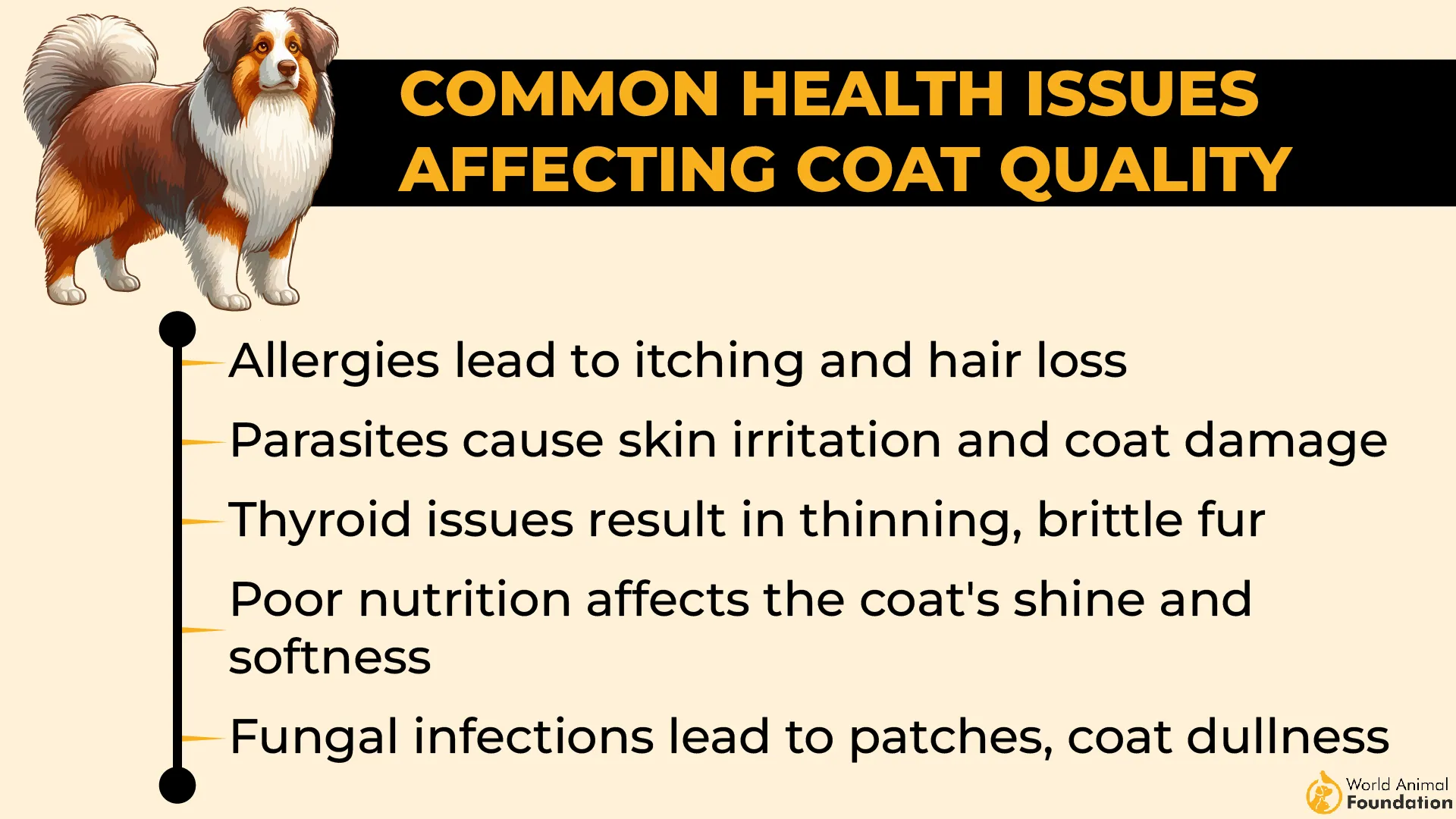
Care Tips To Manage Allergic Reactions
- Stock up on some hypoallergenic dog food, and it will ensure your pet’s internal system is sturdy enough to beat the allergens.
- Regular bathing and brushing will help in removing trapped allergens from the coat.
- Use a special, mild oatmeal shampoo for the dog’s sensitive skin.
2. Bichon Frise
This hypoallergenic dog is affectionate, cheerful, and feisty. However, it is also sensitive to allergies related to the skin.
Why Is It Prone To Allergies?
Bichon Frise has environmental and food allergies.
Mostly, it is the consumed food that may lead to your dog having itchy skin. Consuming chicken, wheat, beef, dairy, and some other human foods can cause prickly skin, ear infections, or digestive problems in this breed.
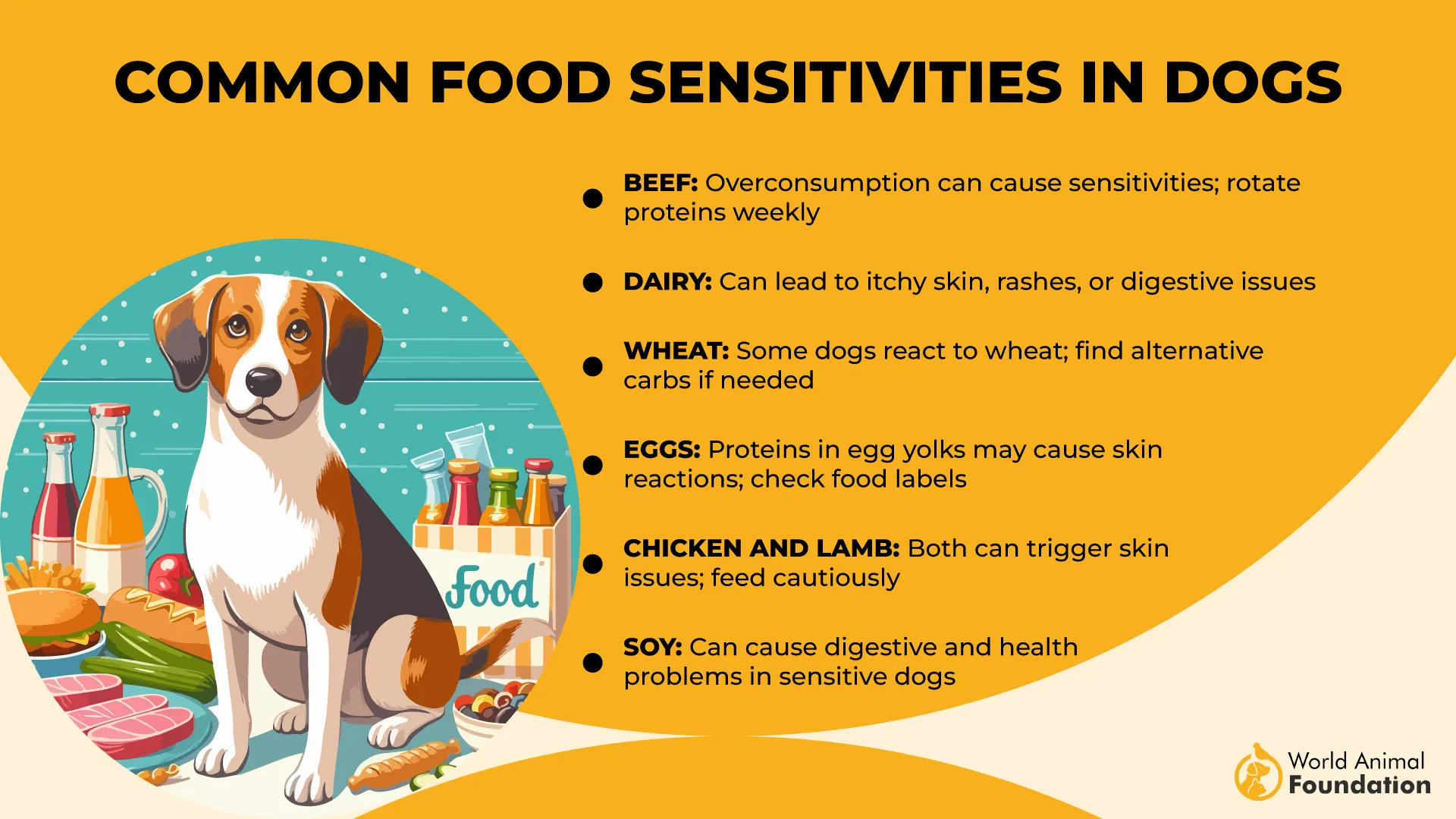
Alongside this, humid weathers also impact this dog’s health. Its fluffy coat can easily trap moisture, which leads to skin irritation and allergies. Pollen and dust particles are the worst environmental allergens that can impact your immune system, and you may have to rush to a vet!
Care Tips To Manage Allergic Reactions
- Always check the ingredients on the food items you buy for your dog. Be careful of the ingredients that your dog has shown food sensitivities to!
- Clean its ears regularly, as moisture and dirt can get trapped inside and lead to wax buildup.
- Keep allergy shots at home and use them as soon as you see the dog has consumed some human food item that can potentially cause allergies
This Quora thread gives great suggestions to manage allergy symptoms in Bichons.
It’s an irony that, despite being prone to allergic reactions, they are considered one of the best hypoallergenic dog breeds for humans, thanks to their low dander and shedding.
3. Boxer
This gentle giant makes a great family pet, but can catch allergies quite easily!
Why Is It Prone To Allergies?
Boxers have a sleek coat that is extremely low maintenance. Many pet owners choose a Boxer because it’s relatively easy to maintain and doesn’t require frequent grooming.
However, one thing that comes with the low-maintenance coat is thin skin. It can easily react to environmental allergens that may include dust and pollen. A lot of times, a harsh chemical in a cleaning product can lead to atopic dermatitis.
Many food items, such as wheat, beef, chicken, and corn, can turn into food allergens for this dog. Itching, licking, and scratching are the regular allergy symptoms. However, if your Boxer starts having hair loss and even respiratory issues, it is an extreme condition.
Care Tips To Manage Allergic Reactions
- Invest in some high-quality, stainless steel food and water bowls as they will keep food allergies away.
- Brushing and bathing regularly will help remove all the trapped allergens from the body, reducing the chances of allergies.
- During peak pollen seasons, avoid roaming in high-pollen areas.
4. Brussels Griffon

Originating from Belgium, the Brussels Griffon is a watchful and companionable dog that is prone to skin allergies.
Why Is It Prone To Allergies?
This brachycephalic dog breed has a short snout, making it more sensitive to hot, humid weather when compared to other dogs. Pollen, dust mites, and grass can lead to irritated skin and uncomfortable symptoms related to the digestive system.
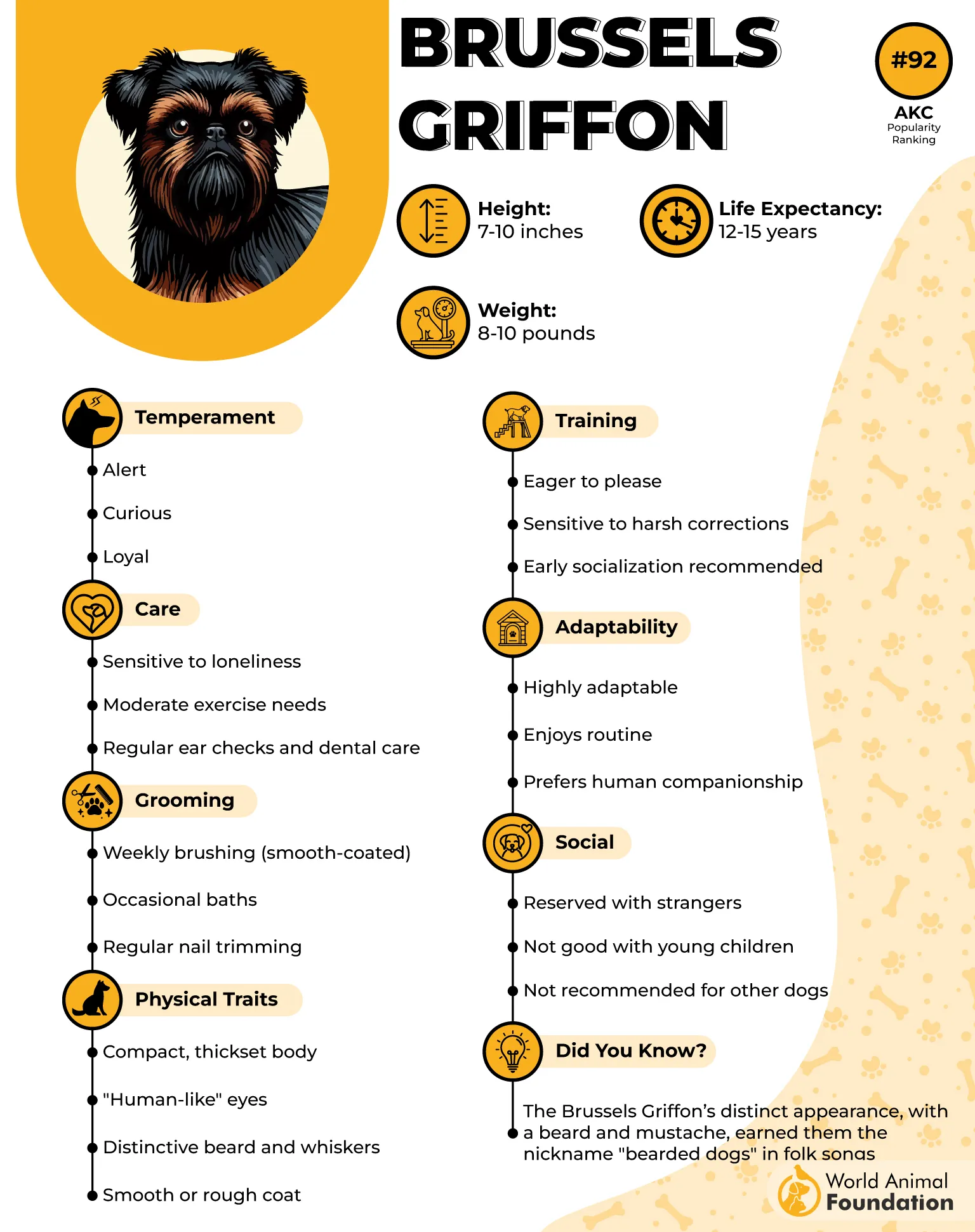
These are phenomenal companion dogs. However, they have food allergies to beef, dairy, or wheat. Significant signs include licking or chewing at paws, rubbing the face on furniture, and hair loss in extreme situations.
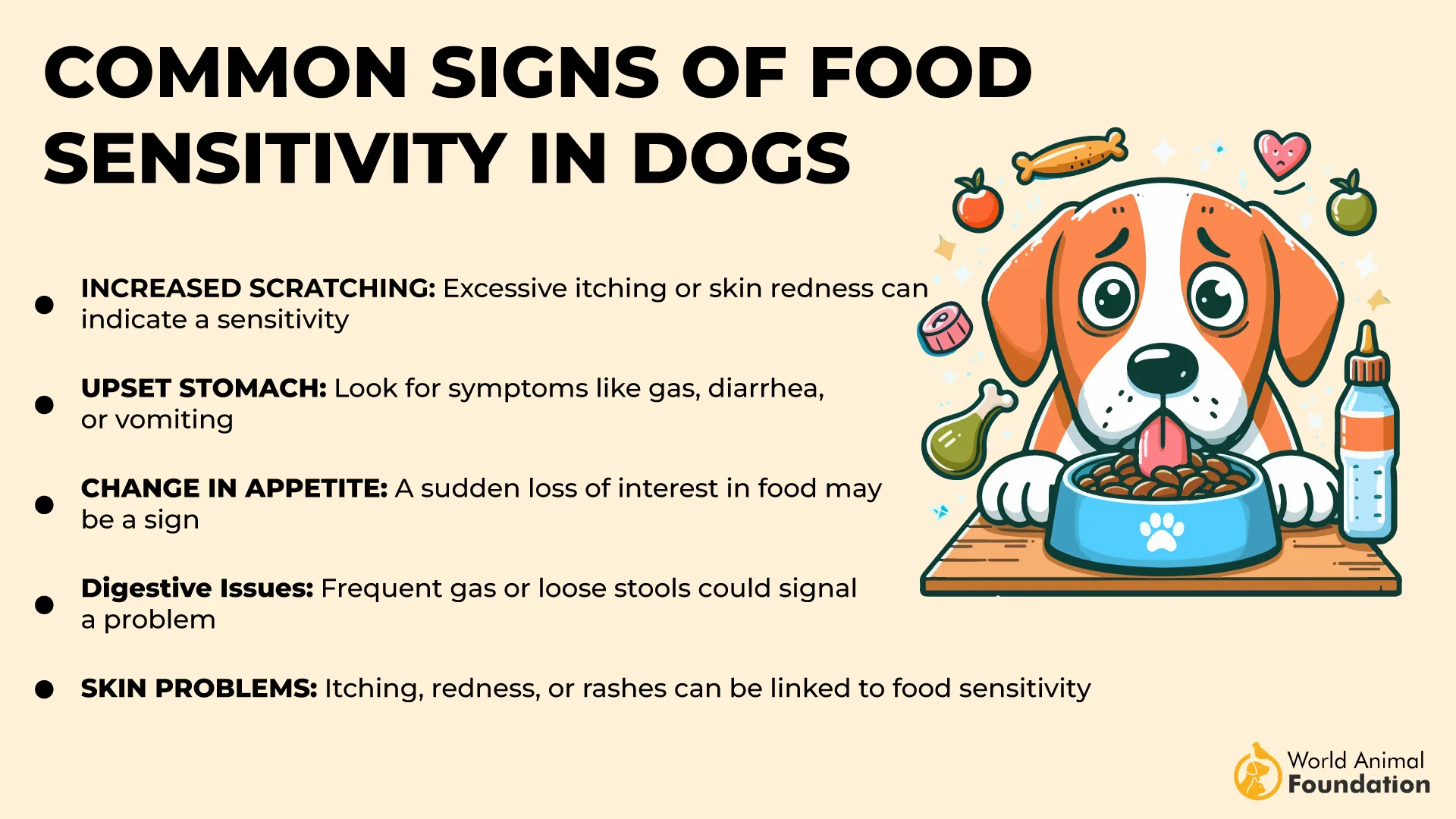
Care Tips To Manage Allergic Reactions
- Check out the ingredients that cause food allergies in your dog and eliminate them from the diet.
- Have a good stock of shampoos, creams, or ointments that don’t have chemicals or possible allergens in them.
- Routine flea prevention actions, such as spraying, are essential to prevent flea allergy.
5. Bull Terrier
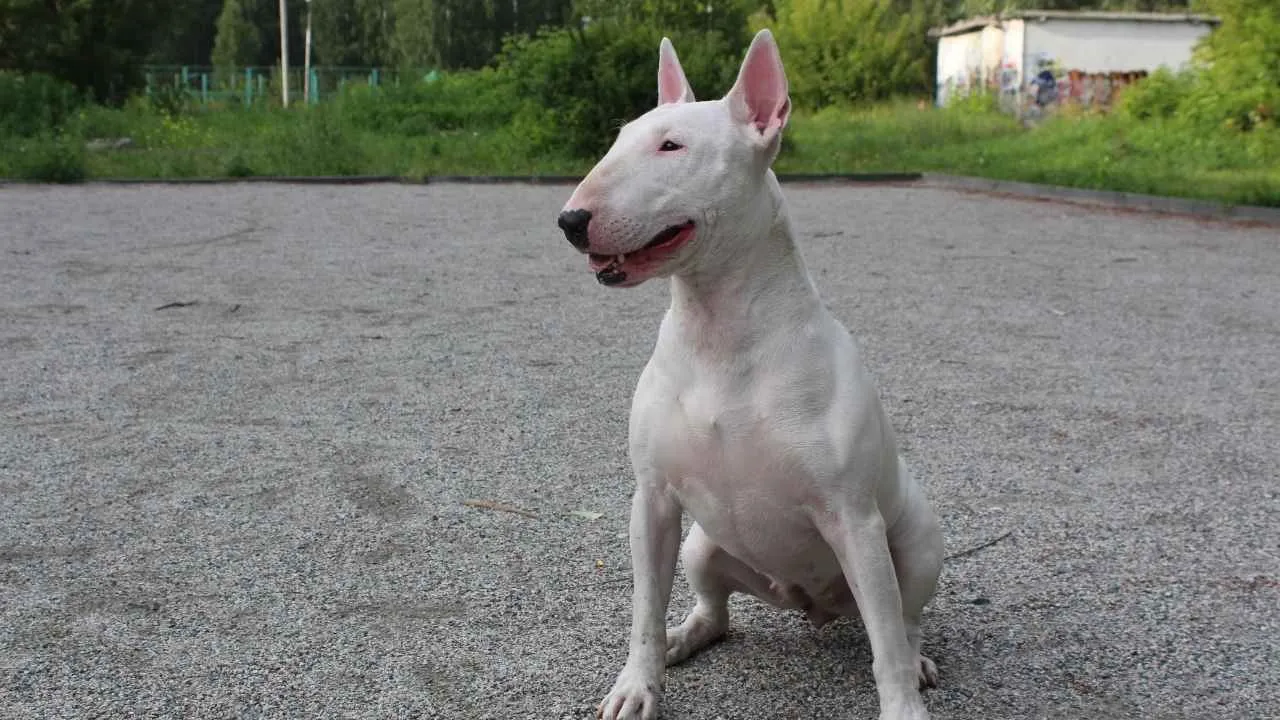
These robust dogs with a unique head also have outdoor and indoor allergens that can cause allergic reactions to them.
Why Is It Prone To Allergies?
Bull Terriers suffer from atopic dermatitis, as per PetMD. They have an inherited tendency to get allergies from environmental catalysts like dust, mold, and pollen.
If you have a white-coated Bull Terrier, you are more likely to visit the vet. This is because the pigment on the skin offers natural protection to the dogs from allergens. White dogs tend to develop skin irritation more quickly than their colored counterparts.
Apart from getting environmental allergies, these dogs’ skin may also react to fabrics and cleaning products. At times, they may also get dry skin allergies from grass in the dog park.
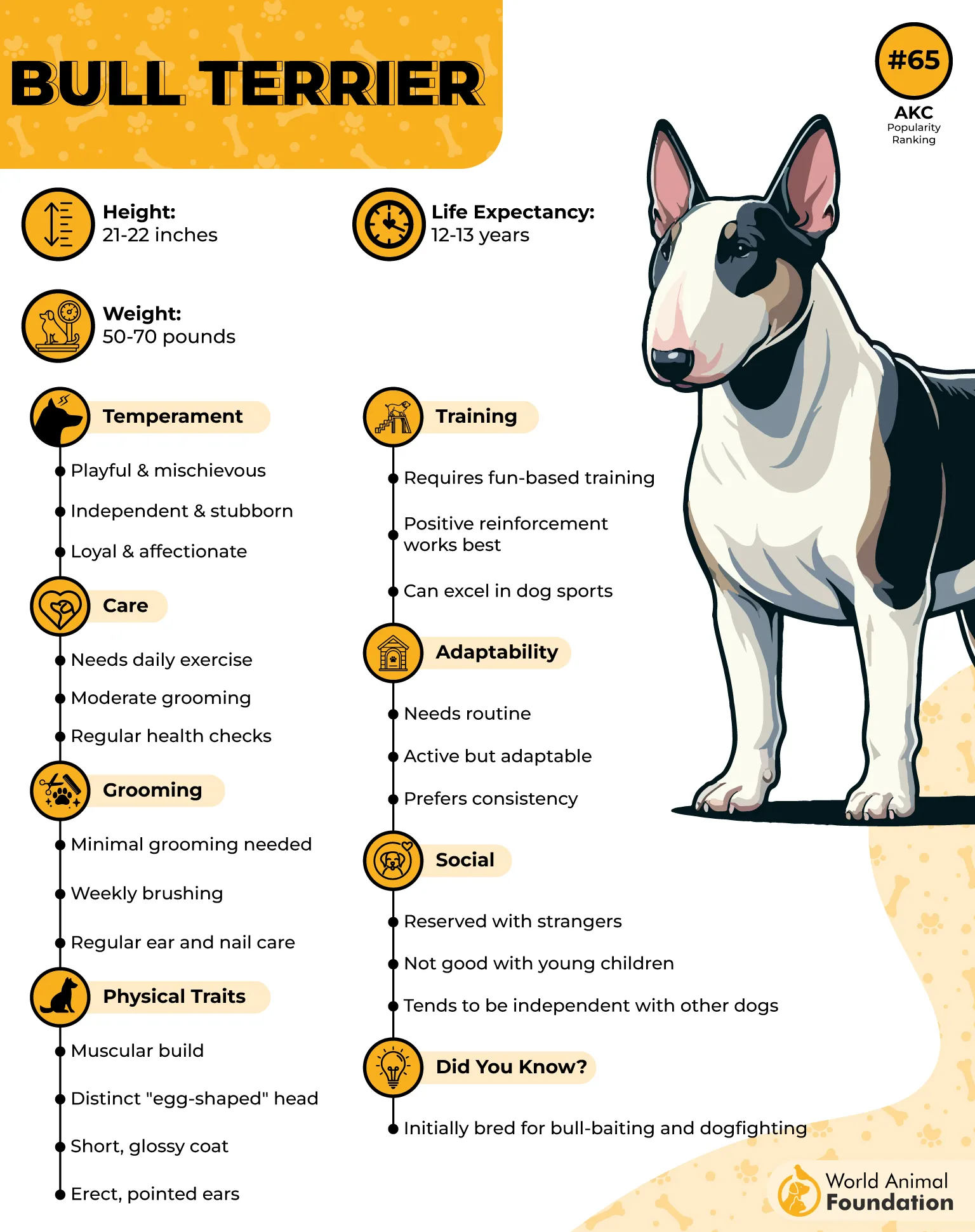
Care Tips To Manage Allergic Reactions
- Regular baths, mostly at least twice a week, work well in calming their itchy skin.
- Wipe their paws after walks so there are no dirt particles accumulated in them that can lead to flaky skin after a day.
- Keep the ears clean to avoid ear infections.
- Add Omega-3 fatty acids to the diet as they help support the immune system.
6. Cocker Spaniel

Cocker Spaniel is a small dog of the Non-Sporting group and is susceptible to allergies.
Why Is It Prone To Allergies?
The dog can naturally inherit allergies. The genes may express themselves at any point in life. In fact, there are great chances it may get ‘hay fever’, just like us humans. This fever comes from a reaction to any allergen, such as a mold or pollen.
These dogs are also super sensitive to flea bites. It leads to intense itching of the tail, lower back, and thighs. The skin then gets irritated, turns red, and forms scabs.
These Spaniels are also prone to getting food allergies. However, it’s necessary to learn the difference between food allergies and sensitivities.
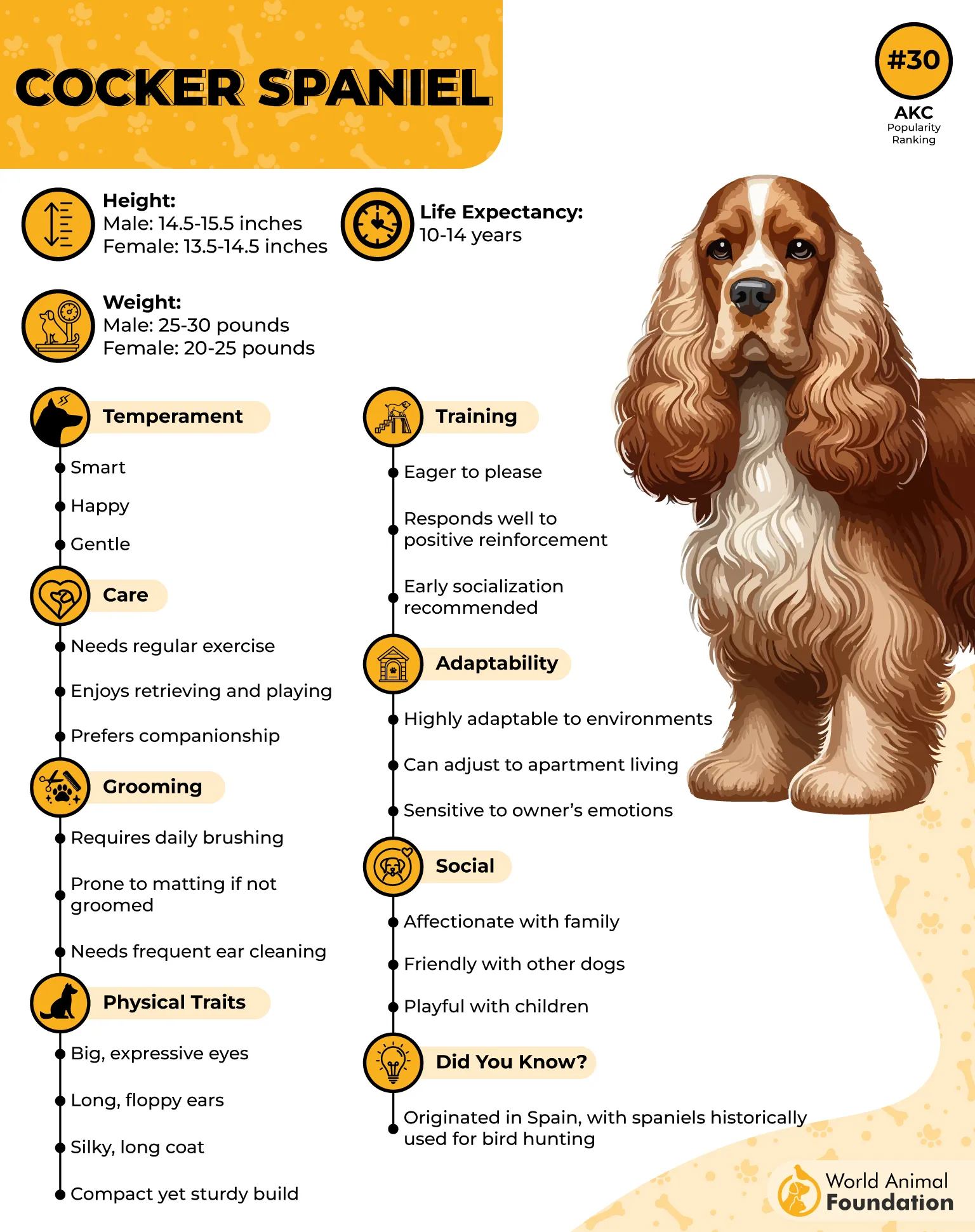
Care Tips To Manage Allergic Reactions
- Keep the surroundings clean and regularly wash the dog’s bedding with chemical-free cleaners.
- Their floppy ears are prone to frequent ear infections, and they require regular cleaning with veterinarian-approved products.
- Give your dog Omega-3 fatty acid supplements after consulting a vet, as they support a healthy immune system.
7. German Shepherd

German Shepherd is a popular pet dog amongst dog lovers, but it is also prone to various allergies.
Why Is It Prone To Allergies?
A lot of food items can trigger food allergies in German Shepherds, including beef, chicken, and dairy products.
Environmental elements, including pollen, dust, and a few kinds of plants, can lead to canine atopic dermatitis. They are also susceptible to flea bites, so it’s best to avoid pet parks when they’re filled with fleas.
The most common symptoms a GSD shows when it gets an allergy include itchiness, redness of the skin, hair loss, or changes in skin quality.

Care Tips To Manage Allergic Reactions
- Use allergy shots to desensitize your dog to some common allergens.
- Keep the environment clean to minimize the exposure of your pet to possible allergens.
- Pinpoint the triggers and eliminate such ingredients from the diet.
Conclusion
Dogs can easily develop allergies owing to a number of reasons. As a dog owner, you need to understand how your pet’s system works and what triggers it. This way, it will get easier for you to manage the allergies.
Be proactive in this regard, and if your dog contacts an allergic reaction, rush to a vet at your earliest! Once you get familiar with your dog’s reactions to various things, be careful to keep him away from those items, be it in their food or the environment.


